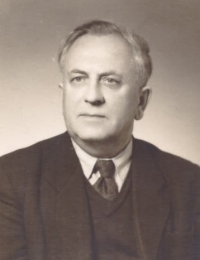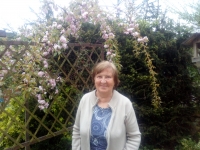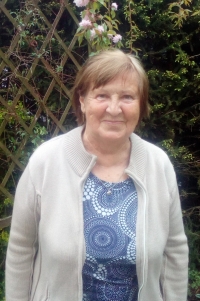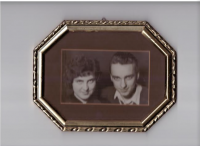As a little girl, she already knew what to keep secrets about. Her dad burned letters of denunciation

Download image
Zdeňka Pohlová was born on 24 October 1940 in East Bohemian town of Vysoké Mýto as Zdeňka Pavlasová. Her father Josef Pavlas came from a farmer´s family that lived in the area of Pardubice which caused the family problems during communism. Her mum came from a poor family in South Bohemia. As a married couple, they lived in the borderline town of Tanvald where Sudeten Germans predominated. After mobilization in 1938, her father enlisted to protect the Czechoslovak Republic and was in charge of a little border fort in Kořenov in the Jizera Mountains. The family left Tanvald and fled to Vysoké Mýto after the Munich Agreement. Her father worked as a postmaster and burned letters of denunciation to Gestapo. He escaped arrest at the last minute and left to join partisans. At the end of the war, Zdeňka spent a lot of time in the basement where she was hiding from air raids. She experienced the liberation of Vysoké Mýto by the Red Army. After the war, she and her parents returned to Tanvald where she was friends with German children and visited them in a camp where they were waiting for their expulsion. She saw a shot young soldier in the town. The communists had her father arrested during the communist putsch in February 1948 because he worked as a postmaster and they wanted to have the post office under control. They let him go after some time but he finished in Tanvald and he served at post offices in Liberec Region. An article about Zdeňka Pohlová was published in Rudé právo (The Red Right) in the second half of the 1950s saying that she was a daughter of a kulak studying at the working-class´s expense. She got married to a German after secondary school, the parents did not meet at all after the wedding. Zdeňka Pohlová´s older daughter had problems being admitted to a grammar school because of her grandfather´s farmer origin. It was only the acquaintance of her father - a popular musician - that helped her. During the Velvet Revolution in 1989, Zdeňka Pohlová´s younger daughter arrived in Tanvald to spread the demands of the striking students, she was not allowed into the factory. She managed to pass the forbidden materials to employees thanks to her mother´s help. Zdeňka Pohlová lived in Tanvald in 2021.








